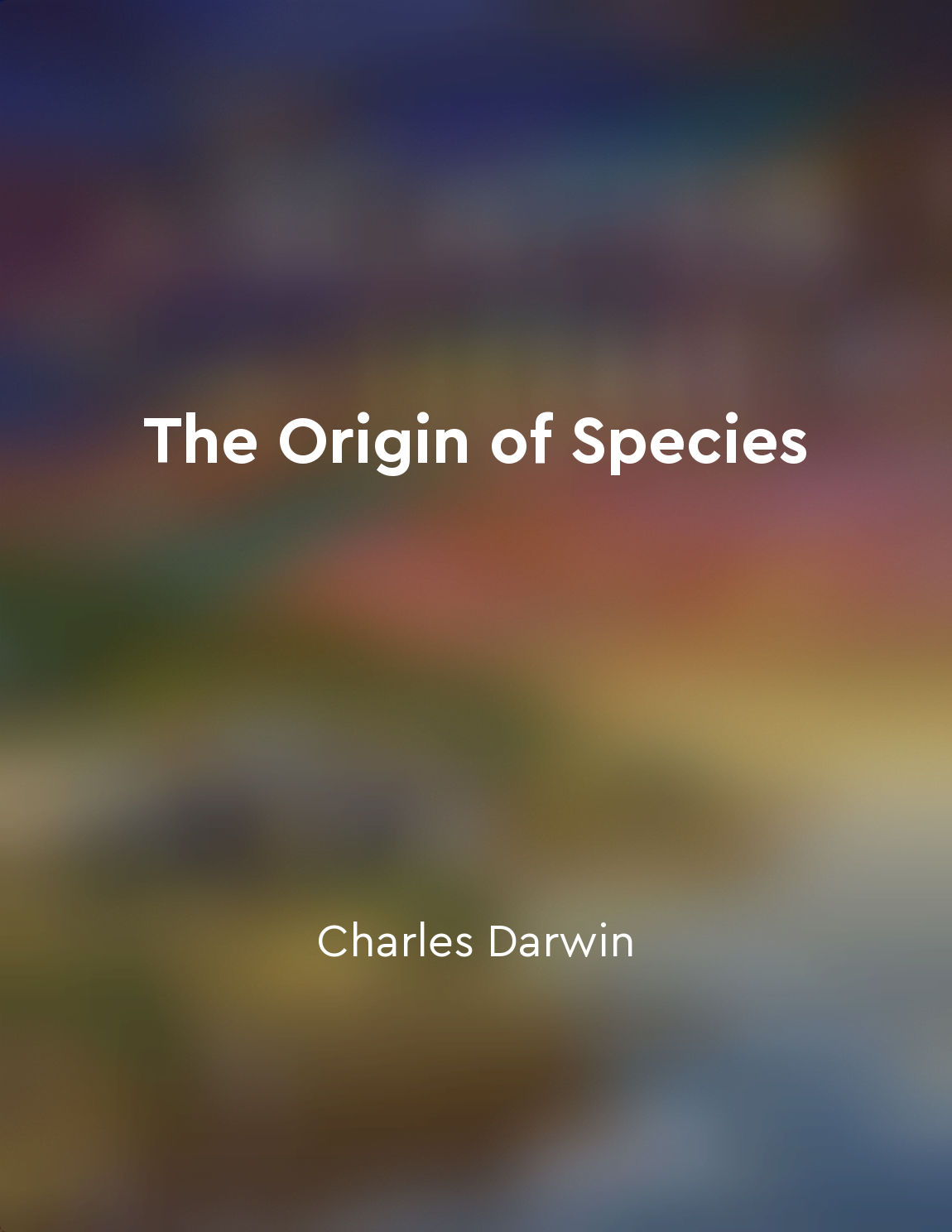Fossils reveal past environments from "summary" of Principles of Geology, Volume 1 by Charles Lyell,Sir Charles Lyell
Fossils provide valuable insights into the environments of the past. By examining the preserved remains of plants and animals, scientists can reconstruct the conditions in which these organisms lived. For example, the presence of certain types of fossils, such as tropical plants or marine organisms, can indicate the climate and habitat of a particular region during a specific time period. Additionally, fossils can reveal information about the geology of an area. For instance, the types of rocks in which fossils are found can give clues about the depositional environment and the geological processes that occurred in that location. By studying the distribution of fossils in rock layers, geologists can infer the past landscapes and the changes that have taken place over time. Furthermore, fossils can provide evidence of past ecosystems and the interactions between different species. By examining the fossilized remains of plants and animals in relation to each other, scientists can reconstruct food webs and ecological relationships that existed millions of years ago. This information can help us understand how ecosystems have evolved and adapted to environmental changes throughout Earth's history.- Fossils offer a window into the past, allowing us to better understand the environments that existed long before human civilization. Through careful study and analysis, scientists can piece together the puzzle of Earth's history and gain insights into the processes that have shaped our planet over millions of years.
Similar Posts

Natural selection acts on existing variations
Natural selection, as I have explained earlier, is the process by which certain traits become more common in a population over ...
Atheists can lead fulfilling and ethical lives without religion
Atheists are often accused of lacking moral guidance because they do not follow a religious doctrine. However, this assumption ...
Microevolution is observable within a single lifetime
In Darwin's Dangerous Idea, Dennett explores the concept of microevolution, emphasizing the observable changes that can occur w...
The canopy is a place of wonder and discovery for explorers and scientists
The canopy is a realm of such complexity and beauty that it can take your breath away. It is a world unto itself, teeming with ...

